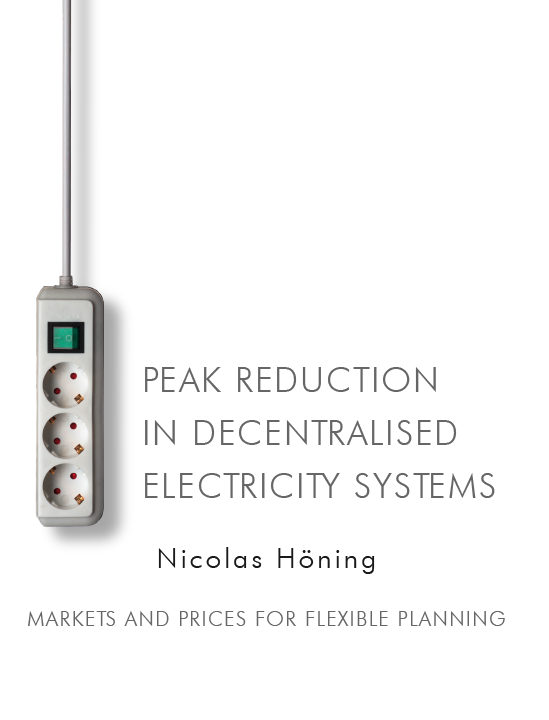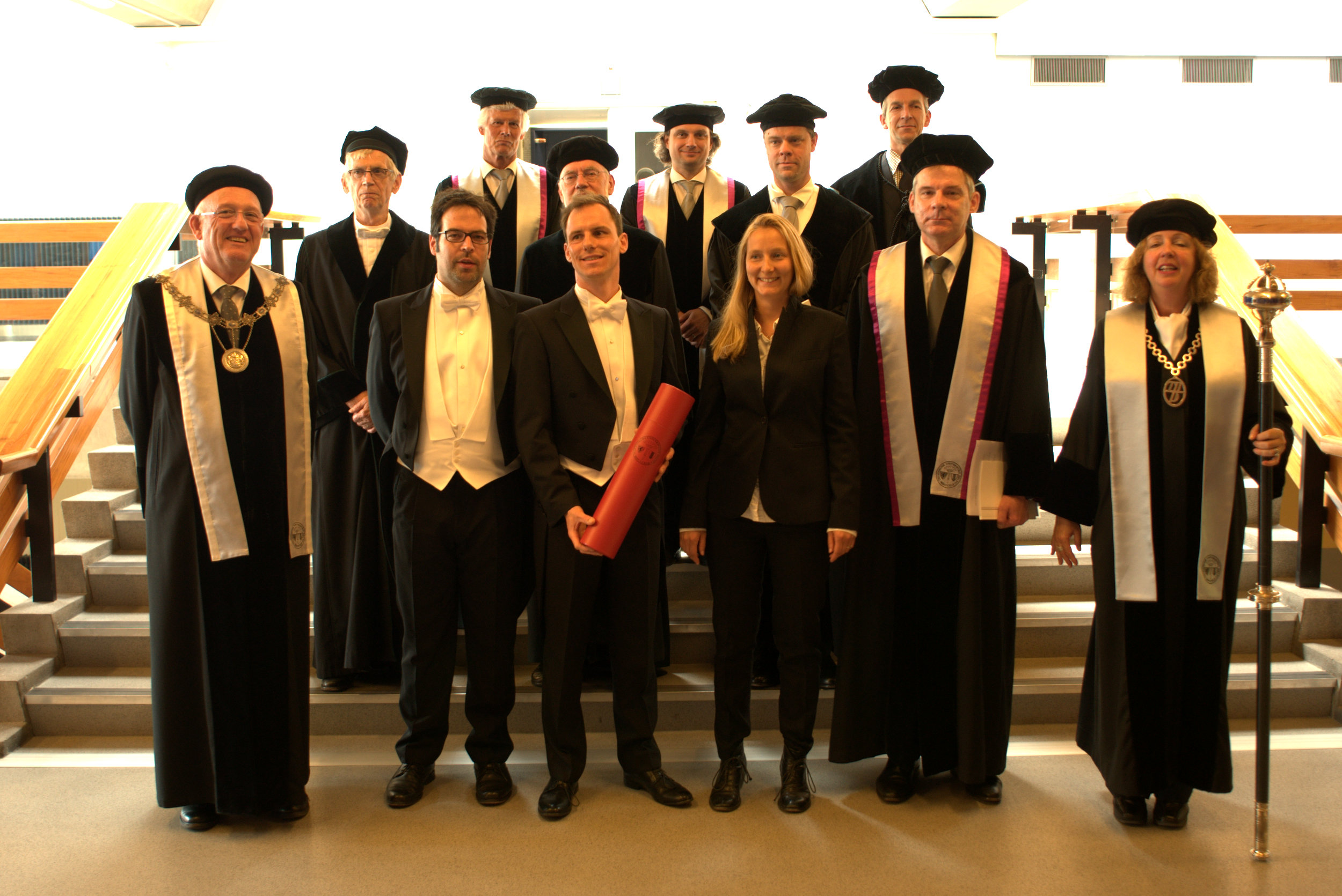I dragged it with me after my contract ended in 2014, but I actually made a finished product out of my dissertation after all and defended it at the TU Delft this past May.
It was a pretty formal procedure as you can see, but quite a meaningful end to , and actually a fun day in the end.
The dissertation itself is available here officially, but also hosted by me. I'll post the propositions here:
1. Both the need for low computational complexity of bidding and for effective capabilities of planning-ahead can be addressed in a market mechanism for electricity, that combines the trade of binding commitments as well as reserve capacity into one bid [this thesis, chapter 3].
2. In settings where a uniform price changes dynamically over time and where these dynamics are influenced significantly by consumer behaviour, the ability of a consumer to comprehend price patterns increases if a large part of the other consumers reacts to price dynamics in a manner similar to how he himself reacts to them [this thesis, chapter 4].
3. Dynamic pricing for electricity can effectively reduce consumption peaks, also under the two conditions that the retailer promises an upper limit on prices and designs his pricing strategy for profit maximisation [this thesis, chapter 5].
4. A heuristic control strategy for a battery which is limited in capacity can be designed such that it has the following three advantages: it reacts fast, it can reduce overheating of a connected low-voltage cable significantly and (if prices are dynamic) it can partly earn back the acquisition cost of the battery by performing revenue management [this thesis, chapter 6].
5. There is not one silver bullet to the problem of how to manage a smart grid in the most efficient way. Each setting has its own requirements, given by its own set of stakeholders and design objectives.
6. To have a healthy and happy toddler is not to a small degree a matter of luck.
7. For the foreseeable future, concerns about privacy need to focus on computers and mobile phones, which directly expose political views and social contacts of their owner, rather than smart meters, which expose less meaningful data.
8. If users do not comprehend the reason why a novel technology interacts with them in the way it does, it will not be adopted, even if it is useful and resource-friendly.
9. Electricity grids are the largest man-made synchronous machines, and economies are the most complex man-made systems. To combine them leads to much more complexity than is commonly assumed, and the resulting systems will therefore never be completely understood.
10. In a referral network, where agents base their opinion about the performance of a service on those of other agents, it is beneficial for users if the agents forget old information at a comparable rate. [N. Höning: "Discounting Experience in Referral Networks", Master thesis, Vrije Universiteit (2009)]

I also was asked to write a very short summary, which might be useful here:
New developments require us to reconsider how electricity is distributed and paid for. Some important reasons are renewable energy, electric vehicles, liberated energy markets and the increasing number of smart devices. How we deal with these dynamics will affect important aspects of the upcoming decades, for example transportation, home automation, heating/cooling & climate change.
In order to keep the security of supply high and price fluctuations within acceptable ranges, we need to continuously make the decisions who will supply or consume electricity, at what price and at what time. The resulting complexity should not grow too high for small participants, otherwise novel technology might not be adopted. This dissertation contributes market mechanisms and dynamic pricing strategies which can deal with this challenge and reach acceptable outcomes in four relevant problem settings (mostly situated in lower levels of the electricity grid).
The most critical problem to address are intervals with very high power flow, or with high differences between demand and supply which need to be evened out. Such “peaks” can result in steep price movements and even infrastructure problems. We study decision problems that will arise in expected scenarios where peaks reduction becomes important. In order to arrive at an efficient and usable system, this research specifically looks into
Encouraging short-term adaptations as well as enabling planning ahead (of generation and consumption) within the same mechanism.
Ensuring that small and/or non-sophisticated participants can still take part in mechanisms.
Letting smart storage devices contribute to network protection.
We develop agent-based models to represent expected settings and propose novel solutions. We evaluate the solutions using stochastic computational simulations in parameterised scenarios.
A similarly high-level overview was given by me in a short presentation before the defense.
